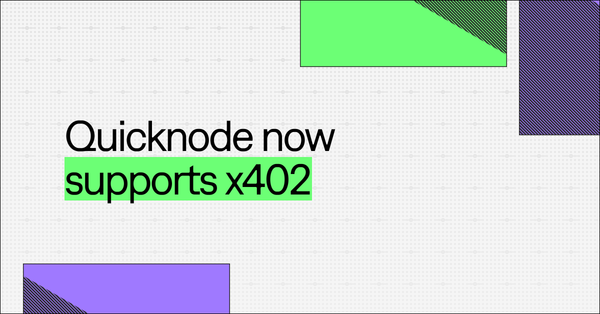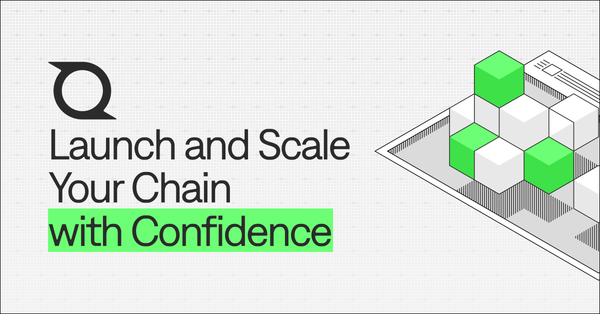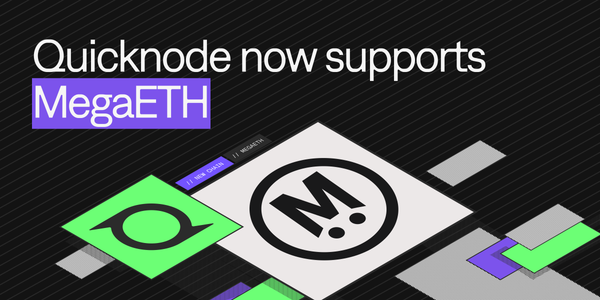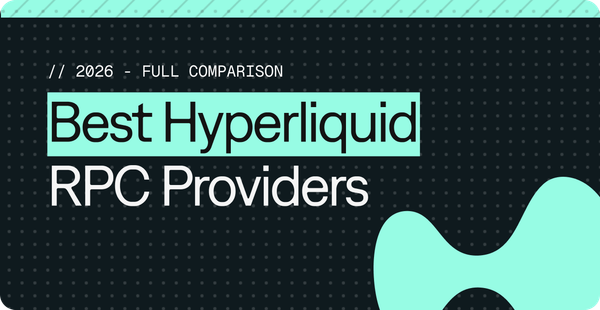Feature Fridays: dTelecom
dTelecom is reshaping digital communication with decentralized, AI-powered infrastructure for Web3 developers and businesses.
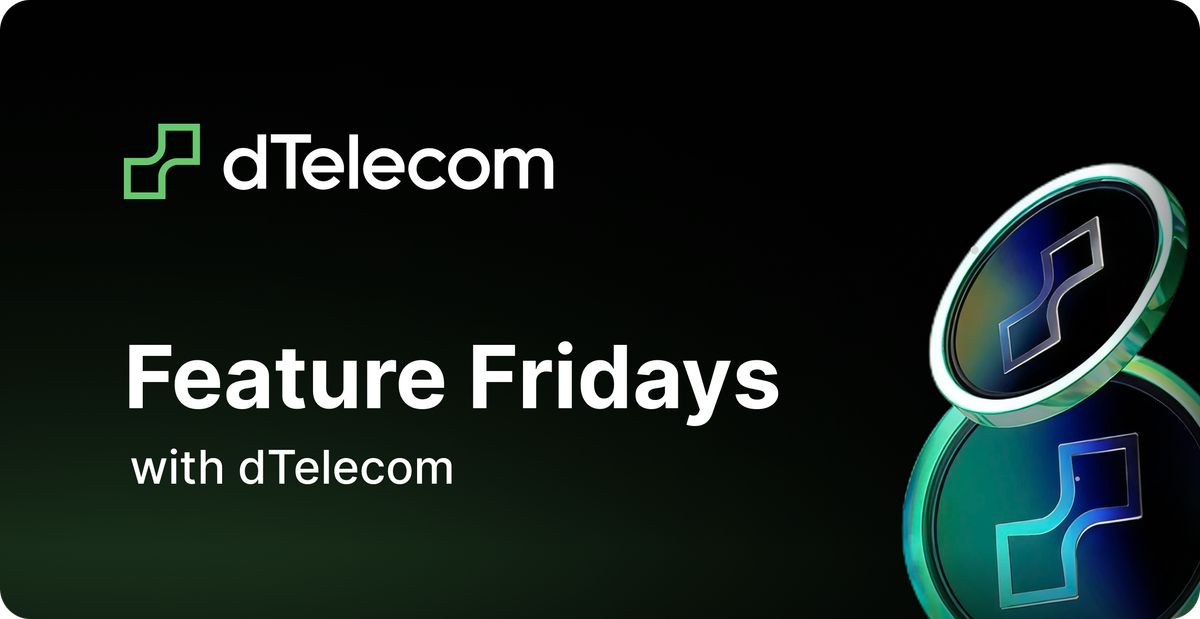
This week, we’re thrilled to spotlight dTelecom, a pioneering force at the crossroads of telecom, AI, and Web3. Co-founded by seasoned telecom entrepreneur Petr and long-time collaborator Vadim Filimonov, dTelecom emerged from a shared vision to decentralize and modernize digital communication.
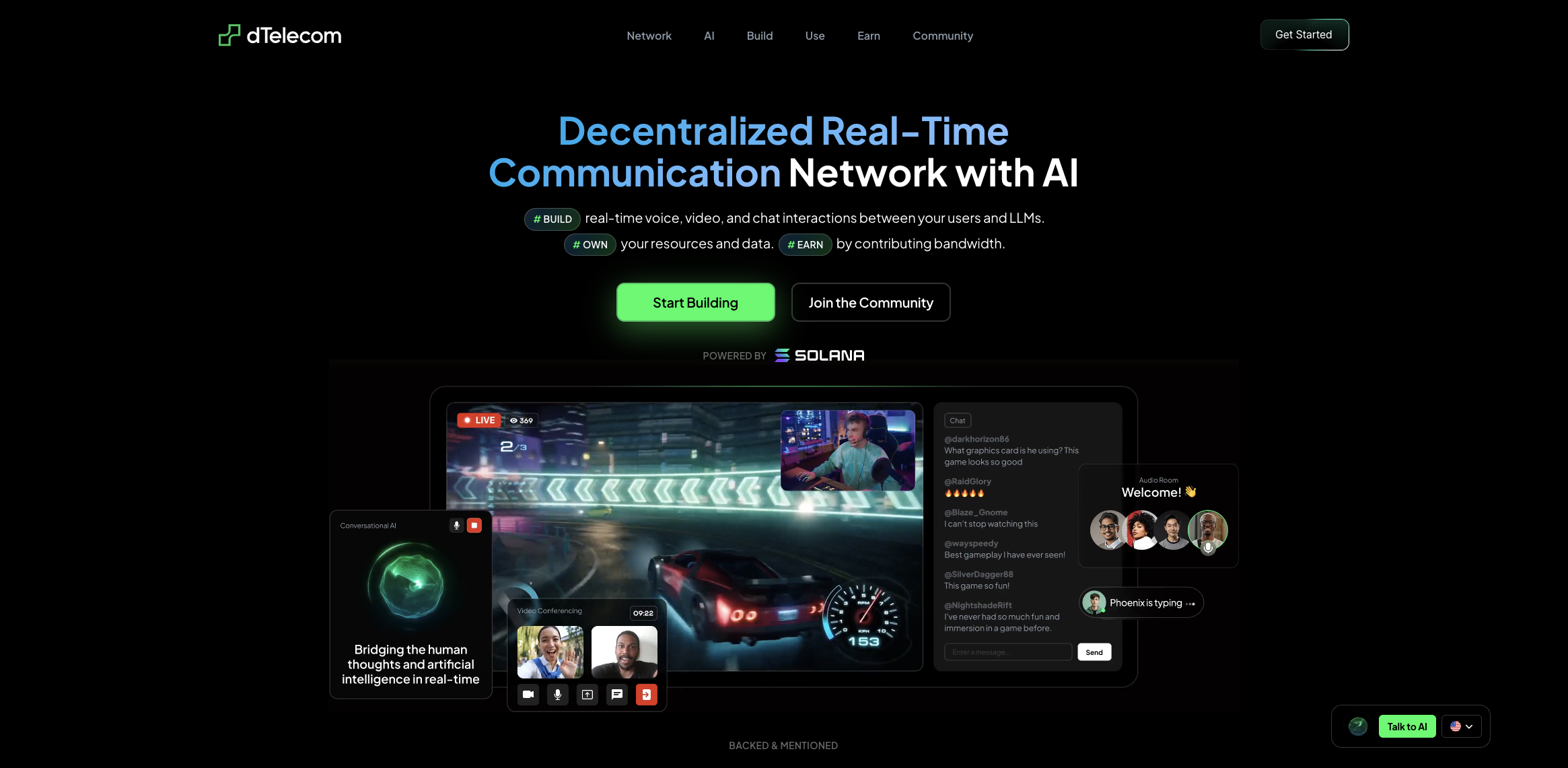
Q & A with dTelecom 👇
Could you introduce yourself by sharing your name, prior experience, and current role within your company? Additionally, please briefly explain your company's mission and what it offers to its customers.
My name is Petr, and I’m the CEO and co-founder of dTelecom. Over the past 17+ years, I’ve been building and scaling companies at the intersection of telecom and technology. My co-founder, Vadim Filimonov, and I have collaborated for years on various tech ventures, and with dTelecom, we’ve brought together our deep experience and knowledge to create something truly foundational.
At dTelecom, our goal is to reshape digital communication by making it decentralized, secure, and powered by AI. We provide users, businesses, and developers with a next-gen infrastructure for real-time communication — voice, video, chat, and AI — through a single, developer-friendly SDK/API that’s built on a distributed network of community-run nodes.
How has your company grown and changed since its inception, and what do you have planned for its future?
Since starting dTelecom in 2022, we’ve gone from concept to an operational decentralized communication network you see now. What began as a lean team with a bold idea has become a working platform already powering real-time use cases. We’ve built strong momentum — from early traction in the Web3 space to successful pilot deployments and growing community interest.
Looking ahead, our long-term ambition is to establish dTelecom as the backbone for future-proof, privacy-focused digital communication, empowering the community, developers, and node operators around the world to connect and build on their terms via our ecosystem.
What inspired you to develop dTelecom, and how did you conceive the idea?
The idea for dTelecom came from years of experience in both telecom and blockchain. Around 2016, I began exploring the decentralized tech space more seriously and saw immense potential in combining it with the communications industry. Vadim and I had already worked on telecom products together, and we kept encountering the same issues: centralized control, lack of transparency, and very high infrastructure costs.
We realized that a decentralized model could solve many of these problems, not just technically, but economically as well. That’s when we decided to create a platform where communication could be more private, efficient, and fair — and where the infrastructure is not owned by a few corporations, but by the people who power it via decentralization.
Can you provide insight into dTelecom’s progress by sharing any metrics or milestones indicating its traction?
We’ve made strong progress since launch. Some highlights include:
1. Fully decentralized nodes actively routing real-time communication traffic.
2. We’ve officially launched on Solana, one of the leading blockchain ecosystems, and received direct support from their team — a major step in our mission to scale globally.
3. Several internal products already built on top of our SDK — including a decentralized video conferencing tool and an AI-powered voice assistant — are now enhanced with real-time translation across 30+ languages.
4. We were recognized by the developer community and secured a win at the NEAR MetaBUILD III Hackathon.
5. Our decentralized infrastructure has helped clients cut down on communication-related infrastructure costs by up to 95% compared to traditional centralized platforms.
6. We were awarded a grant from Eleven Labs, which will further strengthen our AI capabilities, particularly in voice synthesis and language models.
7. dTelecom got a strategic partnership with MagicBlock to enhance our decentralized coordination and our support in the Solana ecosystem.
8. We’ve also partnered with Privy to ensure seamless and secure user onboarding with privacy-first identity infrastructure.
Beyond these milestones, our community is steadily growing, with developers actively engaging with our SDK and contributing to the expansion of the network.
How does your company utilize QuickNode, and what benefits does it bring to your business operations?
QuickNode is an important part of our backend infrastructure. As a decentralized platform, dTelecom relies on consistent and high-speed access to blockchain networks, especially for verifying node activity, handling token rewards, and executing smart contracts.
With QuickNode, we’re able to maintain low-latency performance while scaling our services reliably. It allows our team to focus on building the product and scaling the network without worrying about node maintenance or RPC performance. In a system like ours, where every second counts, QuickNode helps us maintain the high performance our users and clients expect.

About QuickNode
QuickNode is building infrastructure to support the future of Web3. Since 2017, we've worked with hundreds of developers and companies, helping scale dApps and providing high-performance access to 60+ blockchains. Subscribe to our newsletter for more content like this, and stay in the loop with what's happening in web3!


